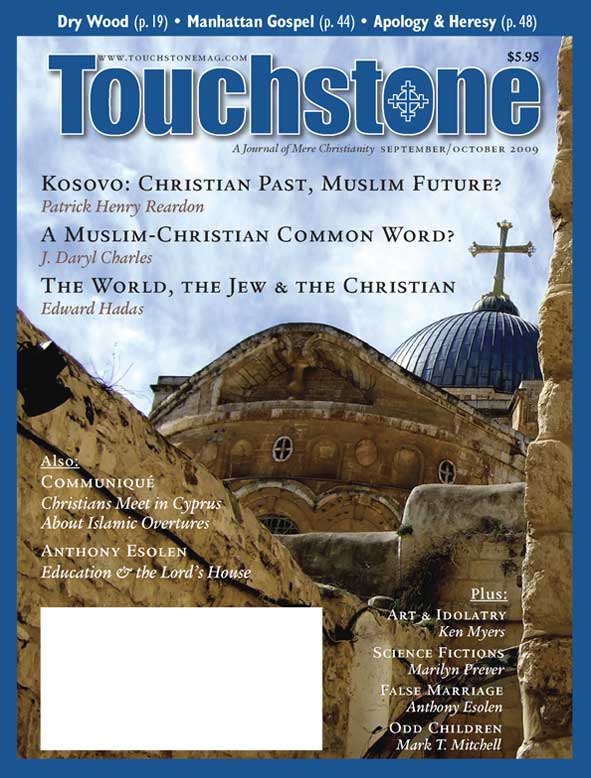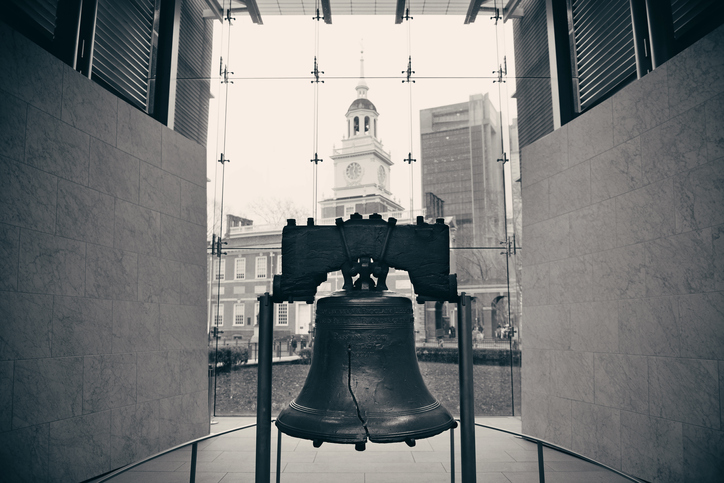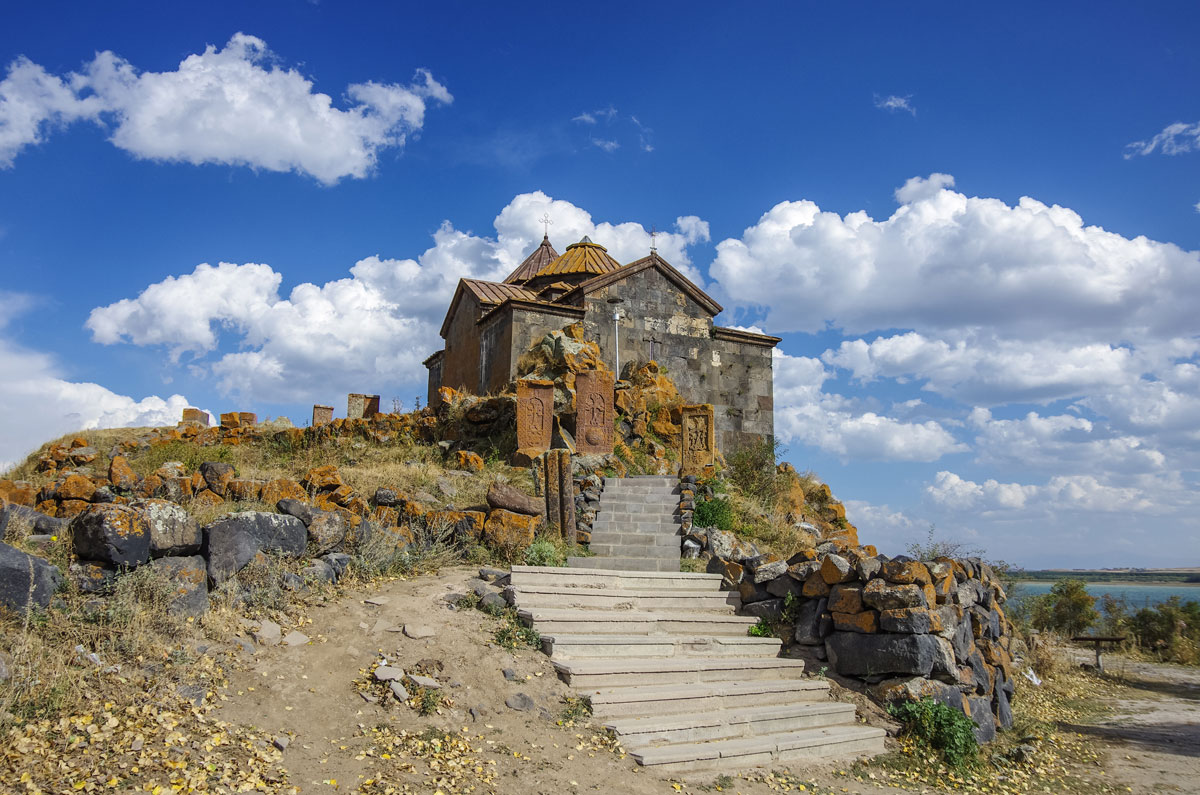Kosovo Lost & Found
A Visit to Old Serbia in Search of Its Ultimate Destiny
by Patrick Henry Reardon
For both of us sitting down to coffee that morning—in an outdoor café in Kosovo—the meeting was a “first”: Never before had I spoken with a Muslim Kosovar, nor had Icuf Ukëhaxhaj ever shaken hands with an Orthodox Christian priest. It took a little while for each of us to size up the other.
I was my usual bubbly self, I suppose, but Icuf (Albanian for “Joseph”) needed a few minutes longer to adjust. Although persuaded by a mutual friend to speak with me, he insisted that the meeting take place several miles from his home, so his Muslim neighbors—historically sensitive on the matter of Orthodox Christians—would not get the wrong idea. Less than a decade had elapsed, after all, since Kosovo’s civil war, and bitter memories of that conflict were very fresh. Icuf wanted to make sure none of his neighbors thought he was “selling out” by chatting with an Orthodox priest. An Orthodox priest, in Kosovo, is normally a Serb, and a Serb, to Icuf and his Muslim neighbors, is an enemy.
Kosovo’s civil war, a final stage in the breakup of that strange political amalgam known as Yugoslavia (a modern makeshift union finally dissolved in 2006), had been particularly brutal. Although Kosovo had far more Albanians than Serbs, the government in Yugoslavia—and Serbs generally—regarded Kosovo as an integral part of Serbia. After this government revoked the limited autonomy of Kosovo in 1990, roughly 80,000 Albanian Kosovars lost their government jobs, and Yugoslavia initiated a much tighter economic, political, and cultural control of the region.
The civil war, begun in 1996, arose in response to those developments. Into Kosovo, the Yugoslav government in Belgrade sent an army of Serbs for the undisguised purpose of what we have come to call “ethnic cleansing.” As thousands were killed, tens of thousands were injured, and hundreds of thousands were forced out of Kosovo (mainly to neighboring Albania and Macedonia), the war dragged on until the air forces of NATO compelled Yugoslavia to back down early in 1999.
Everywhere I saw evidence of the war, both in ruined buildings (including numerous mosques) and in many shrines erected to commemorate the dead. These latter included not only the casualties of combat, but also the victims of random murders and systematic atrocities. I had been warned that the Kosovars would want to talk mainly about the war.
Many Meetings
I came to Kosovo, however, not to assess the past, but to gain some perspective of the region’s economic, political, and religious future. In particular, I wanted to put a personal face on the region, by meeting as many different sorts of its citizens as I could, both Albanians (at least 88 percent of the population) and Serbs (generously estimated at only 7 percent since the war).
Orthodox missionaries from America to Albania had arranged for me to interview both Muslims and Christians—the latter including Serbian Orthodox and Roman Catholics—as well as people with not much religion at all (evidently the majority). I was especially interested in learning from professional types and local leaders: businessmen (like Icuf), municipal politicians, doctors, clergy, and such. Besides several individual teachers in various parts of the region, I met the entire faculty of a grammar school in Caralug.
The future of Kosovo was the object of my inquiry. I was not interested in rehearsing the details of the recent hostilities—including myriad recriminations, indictments, and accusations of atrocity from both sides—though this painful subject was still very much on the minds of those I interviewed.
Patrick Henry Reardon is pastor emeritus of All Saints Antiochian Orthodox Church in Chicago, Illinois, and the author of numerous books, including, most recently, Out of Step with God: Orthodox Christian Reflections on the Book of Numbers (Ancient Faith Publishing, 2019).
subscription options
Order
Print/Online Subscription

Get six issues (one year) of Touchstone PLUS full online access including pdf downloads for only $39.95. That's only $3.34 per month!
Order
Online Only
Subscription

Get a one-year full-access subscription to the Touchstone online archives for only $19.95. That's only $1.66 per month!
bulk subscriptions
Order Touchstone subscriptions in bulk and save $10 per sub! Each subscription includes 6 issues of Touchstone plus full online access to touchstonemag.com—including archives, videos, and pdf downloads of recent issues for only $29.95 each! Great for churches or study groups.
Transactions will be processed on a secure server.
more from the online archives
calling all readers
Please Donate
"There are magazines worth reading but few worth saving . . . Touchstone is just such a magazine."
—Alice von Hildebrand
"Here we do not concede one square millimeter of territory to falsehood, folly, contemporary sentimentality, or fashion. We speak the truth, and let God be our judge. . . . Touchstone is the one committedly Christian conservative journal."
—Anthony Esolen, Touchstone senior editor










